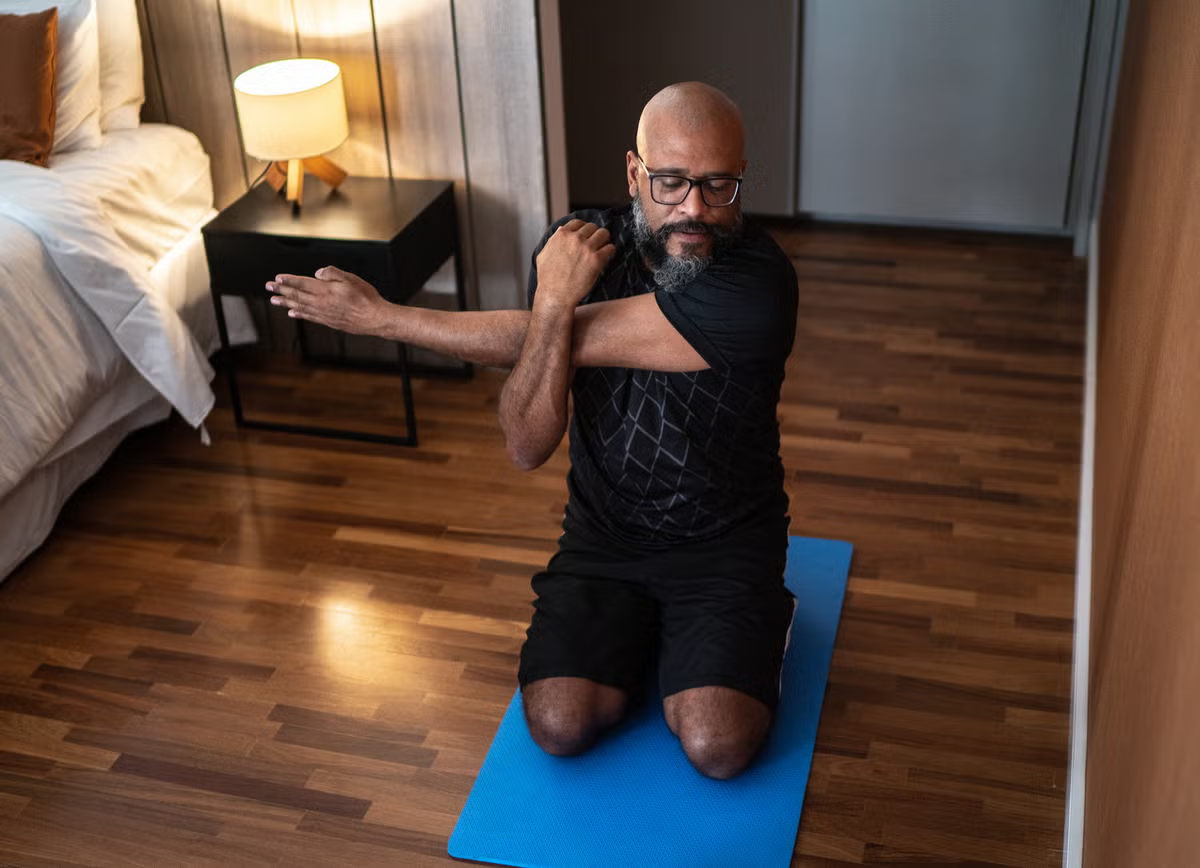Optimising your morning routine is everywhere on social media – but what if the real secret to a better day starts the night before? According to exercise scientist Dr Mike Israetel, it’s your evening habits that may have an even greater impact on your overall wellbeing.
Why evening routines are so important
‘Good relaxation sets up good sleep, and both of those are incredibly important for all of stress management,’ Dr Mike says in his YouTube video. ‘If you screw up your evening routine it costs you relaxation, which drops fatigue for your whole week a tonne, keeps you sane, smarter, and better recovered for training.
Dr Israetel highlights that performing well and completing everything you need is affected much more by relaxation and good sleep in the long run. Without proper rest, morning routines eventually won’t help you function at your optimum. ‘Morning routines are overrated,’ Dr Israetel adds.
‘Sleep is the most important thing you do all day, other than just generally being alive. Sleep is critical for staying more muscular, leaner, way more sane, super productive, super smart, and kinder to people.’
How to improve your evening routine
In order to properly wind down and get the full benefits of an evening routine, Dr Israetel urges everyone to clock-out from work mentally – closing the laptop and stopping emails or messages – and limit physical activity at least two hours before bedtime. While slow walks are fine, hard cardio and weightlifting will impede your ability to achieve a deeper level of total relaxation. In a similar sense, stopping anything competitive that produces a spike in adrenaline, such as online gaming, will prove beneficial.
Calorific meals should also be avoided in the two-to-three hours before bedtime. High calories keeps your heart rate and blood pressure elevated, while the digestion process also increases your body temperature. Those factors all make it more difficult to get to sleep, and can reduce the quality of sleep too. He also recommends to lay off on large quantities of liquid in this period, so that your sleep isn’t disrupted by needing to go to the toilet.
Dr Israetel discusses the pitfalls of the big beast that is social media, the news and any other messages that can cause you to stress out. If you’re susceptible to engaging in online arguments or working yourself up over negativity in the news, he reckons skipping them altogether will help.
Alternative techniques to try
Dr Israetel recommends trying a variety of techniques to improve your evening routine. Common strategies include dimming the lights in the hours before bed, switching screens to night mode to reduce blue light exposure, and winding down with activities like reading, stretching, or meditation. Creating a dark, quiet sleep environment – whether with blackout curtains, earplugs, or white noise – can also make a significant difference.
You could also try brain-dump journaling – writing down either positive reflections on the day or tomorrow’s to-dos. Offloading unfinished business in this way has been shown to reduce the time it takes to fall asleep by around 10 minutes. Breathing exercises or mindfulness techniques may also help, but only if you genuinely enjoy them.
Temperature plays a key role, too. A cool room – ideally between 15–19°C – can help your body prepare for sleep, while a warm shower before bed can speed up the process. The hot water raises your skin temperature, prompting a drop in core temperature afterwards, which naturally helps you relax.
Preparing for the next day can also ease anxiety: laying out gym or work clothes, prepping breakfast, or organising your to-do list helps signal to your brain that it’s time to wind down. And finally, Dr Israetel notes that partnered sex ending in orgasm is associated with shorter sleep latency and better overall sleep quality.
This article originally appeared on Men’s Health UK.
These celebrity morning routines are the right way to kickstart your day















